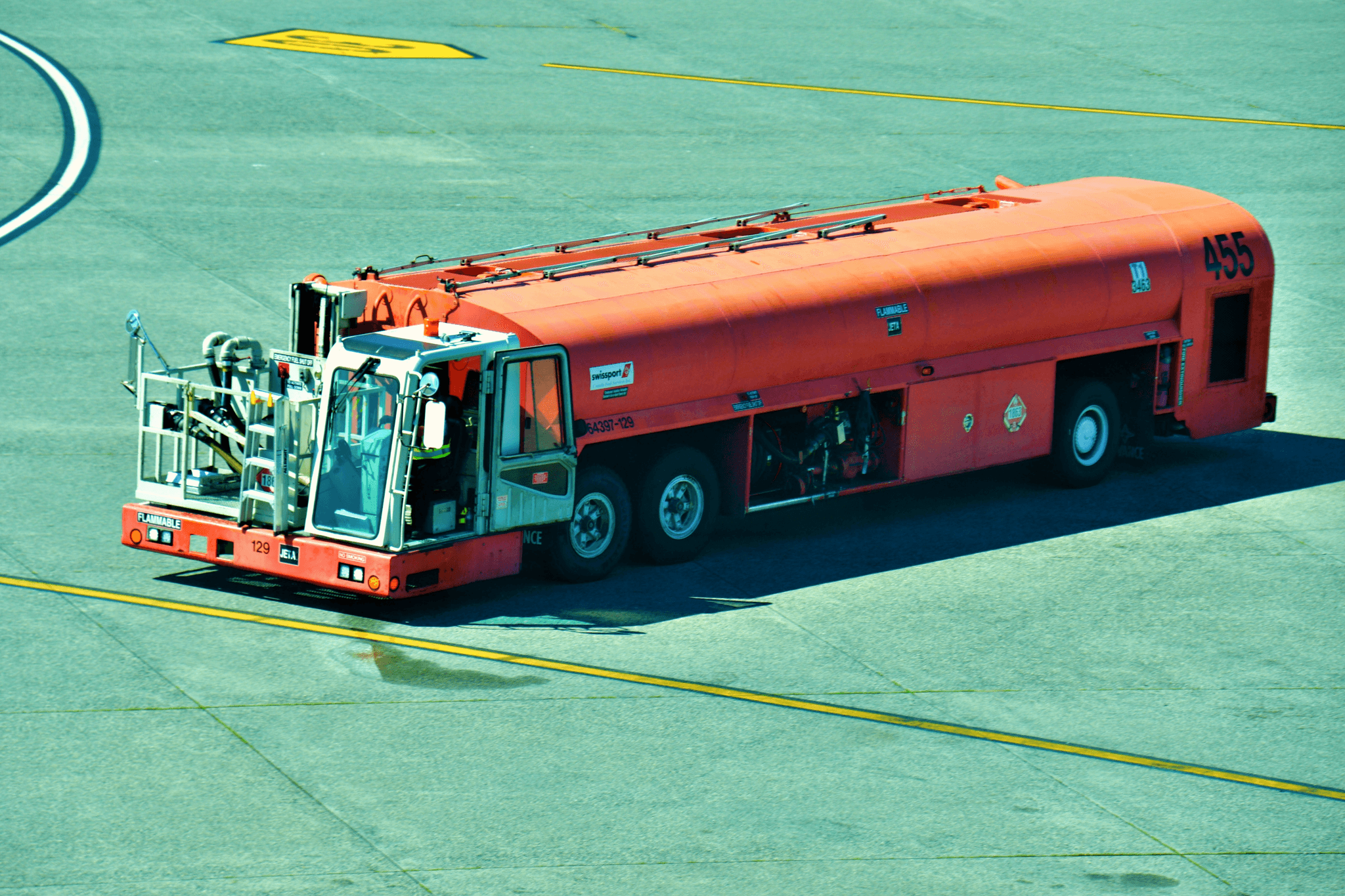Introduction

In the fast-paced world of aviation, the efficiency of aviation fuel truck systems plays a crucial role in ensuring smooth operations at airports. With the increasing demand for air travel, having reliable and advanced aviation fuel trucks is essential for fueling aircraft quickly and safely. The market for these specialized vehicles has grown significantly, with various options available, including electric aviation fuel trucks and robust 10000 gallon jet fuel trucks.
The Importance of Efficient Aviation Fuel Systems
Efficient aviation fuel systems are vital for minimizing downtime and maximizing aircraft availability. A well-designed aviation fuel truck can streamline refueling processes, allowing airlines to turn around flights faster while maintaining safety standards. With innovations like the Rampmaster fuel truck leading the way, operators can ensure that their fleets are fueled promptly and efficiently.
Overview of Aviation Fuel Truck Technologies
Aviation fuel truck technologies have evolved considerably over recent years, offering a range of features designed to enhance performance and reliability. These include advanced filtration systems that guarantee clean jet fuel reaches the aircraft, as well as electronic controls for monitoring flow rates accurately. Additionally, options such as electric aviation fuel trucks reflect a growing trend towards sustainability in airport operations.
Key Players in the Aviation Fuel Market
The aviation fuel market is populated by several key players who manufacture and supply various types of aviation fuel trucks for sale. Companies like Haisen stand out with their innovative Aircraft Pipeline Refueling Truck, which boasts impressive capabilities in high-flow refueling applications. Other competitors also contribute to this dynamic market by offering specialized solutions like the CF5060TJYGX Aircraft Hydrant Dispenser, ensuring that operators have access to a wide range of efficient fueling options.
Understanding Aviation Fuel Truck Systems

Aviation fuel truck systems play a crucial role in the efficient operation of airports and flight operations. These specialized vehicles are designed to transport, store, and dispense aviation fuels to various aircraft types, ensuring that they are ready for takeoff on time. With advancements in technology, the market for aviation fuel trucks has expanded significantly, offering a variety of options to meet different operational needs.
What are Aviation Fuel Trucks?
Aviation fuel trucks are essential vehicles used for refueling aircraft at airports and other aviation facilities. They are equipped with specialized tanks that can hold different types of jet fuels, including Jet A and Jet A-1, along with advanced pumping systems to ensure safe and efficient delivery. These trucks vary in size and capacity; some can be as large as a 10,000-gallon jet fuel truck, providing ample storage for high-demand operations.
Types of Aviation Fuel Trucks Available
There is a diverse range of aviation fuel trucks available on the market today, catering to various needs within the industry. The most common types include standard jet fuel tanker trucks designed for general refueling purposes, Rampmaster fuel trucks known for their reliability and performance under pressure, and innovative electric aviation fuel trucks that focus on sustainability. Each type has its unique features tailored to specific operational requirements, making it easier for airport operators to find an aviation fuel truck for sale that suits their needs.
Advantages of Using Aviation Fuel Trucks
Using aviation fuel trucks provides numerous advantages over traditional refueling methods or stationary fueling systems. Firstly, they offer flexibility by allowing operators to refuel aircraft wherever needed on the tarmac without being tethered to a fixed location. Additionally, modern aviation fuel truck systems come equipped with advanced safety features that minimize risks associated with handling flammable materials while ensuring efficient dispensing processes—an essential factor when considering high-capacity options like the 10,000-gallon jet fuel truck.
Spotlight on Rampmaster Fuel Truck

The Rampmaster fuel truck stands out in the aviation fuel truck systems landscape, combining efficiency and reliability for seamless aircraft refueling. Designed specifically for the demands of modern airports, this fuel truck offers a robust solution for various aviation fuel needs. With its advanced engineering and user-friendly features, it has become a preferred choice among operators looking to enhance their refueling operations.
Features of Rampmaster Fuel Trucks
Rampmaster fuel trucks come equipped with state-of-the-art technology that ensures safe and efficient dispensing of jet fuel. These aviation fuel trucks feature high-capacity tanks, often exceeding 10,000 gallons, allowing for extended service without frequent refills. Additionally, they are designed with advanced filtration systems to remove impurities from the fuel, ensuring that only clean jet fuel reaches the aircraft.
Another notable feature is the intuitive control system that allows operators to monitor flow rates and tank levels easily. This capability helps in maintaining precise dispensing during critical operations while minimizing waste and spillage. The combination of durability and smart design makes Rampmaster an industry leader in aviation fuel truck systems.
Applications and Benefits
The applications of Rampmaster fuel trucks are vast, ranging from commercial airports to military bases needing reliable jet fueling solutions. Their ability to service various aircraft types efficiently makes them indispensable in any aviation setting where speed and reliability are paramount. Moreover, these trucks can be adapted for both underwing refueling and hydrant servicing, providing versatility that few competitors can match.
One of the significant benefits of using a Rampmaster is its impact on operational efficiency; fewer trips to refill means more time spent servicing aircrafts on the tarmac. This translates into reduced turnaround times for flights—an essential factor in today’s fast-paced aviation environment where every minute counts. Furthermore, with features designed for safety compliance, operators can feel assured about adhering to industry regulations while maximizing productivity.
Real-World Performance Metrics
When evaluating real-world performance metrics of Rampmaster fuel trucks, several key indicators stand out among users across various sectors in the aviation industry. Customers frequently report improved operational efficiencies due to faster refueling times compared to traditional methods—often cutting down wait times by as much as 30%.
Additionally, many operators have noted a significant reduction in maintenance costs due to the robust construction and reliable components used in these vehicles; this translates into lower total cost of ownership over time compared to other options available on the market like electric aviation fuel trucks or smaller jet fuel tanker trucks.
In summary, whether you're considering an Aviation Fuel Truck for sale or looking at options like a 10,000-gallon jet fuel truck or even electric models like those offered by Haisen's Aircraft Pipeline Refueling Truck line-up—Rampmaster remains a strong contender worth examining closely.
Innovations in Electric Aviation Fuel Trucks

The aviation industry is witnessing a significant shift towards electric fuel truck technology, which promises to redefine the efficiency and sustainability of aviation fuel systems. Electric aviation fuel trucks offer numerous advantages over their traditional counterparts, including reduced emissions and lower operational costs. As the demand for greener solutions grows, these innovations are becoming essential for airports looking to modernize their aviation fuel truck systems.
Benefits of Electric Fuel Truck Technology
Electric fuel trucks provide several benefits that make them an attractive option for airport operations. Firstly, they significantly reduce greenhouse gas emissions compared to diesel-powered models, contributing to a cleaner environment around airports. Additionally, electric aviation fuel trucks have fewer moving parts than traditional combustion engines, resulting in lower maintenance costs and increased reliability over time—a crucial factor when considering an Aviation Fuel Truck for sale.
Moreover, the quiet operation of electric trucks enhances the working conditions at busy airports by minimizing noise pollution during refueling operations. This aspect is especially beneficial during nighttime operations when noise restrictions may be more stringent. With advancements in battery technology, these vehicles can achieve longer ranges and faster charging times, making them a practical choice for modern aviation fuel systems.
Leading Electric Aviation Fuel Trucks
Several manufacturers are leading the charge in developing electric aviation fuel trucks that meet the unique needs of airport operations. Companies like Rampmaster are innovating with designs that integrate cutting-edge electric powertrains into their existing models while maintaining robust performance characteristics typical of traditional jet fuel tanker trucks. These advancements ensure that operators can rely on electric models without sacrificing efficiency or effectiveness.
Another notable contender in this space is Haisen's Aircraft Pipeline Refueling Truck, which not only supports high flow rates but also integrates advanced electrical systems for optimized performance during refueling processes. This versatility allows Haisen's offering to cater to various aircraft types while ensuring safety and precision—key components in any effective aviation fuel truck system.
As electric technology continues to evolve, more players are expected to enter the market with innovative solutions tailored specifically for airport refueling needs—further enhancing the options available when searching for Aviation Fuel Trucks.
Environmental Impact and Efficiency
The environmental impact of transitioning to electric aviation fuel trucks cannot be overstated; these vehicles play a crucial role in reducing carbon footprints associated with air travel logistics. By replacing conventional jet fuel tanker trucks with electric alternatives, airports can significantly cut down on harmful emissions while promoting sustainable practices within the industry. This shift aligns perfectly with global efforts aimed at combating climate change through reduced reliance on fossil fuels.
In terms of efficiency, electric aviation fuel trucks often feature advanced telemetry systems that monitor real-time data on performance metrics such as flow rates and energy consumption—enabling operators to optimize their refueling processes continually. The combination of high-efficiency motors and regenerative braking further enhances energy conservation during operation; thus maximizing utility without compromising service quality.
As more airports adopt these technologies into their infrastructure plans, they will not only improve operational efficiencies but also contribute positively towards meeting international sustainability goals within the aviation sector—ultimately leading us toward a greener future.
The 10000 Gallon Jet Fuel Truck Advantage

In the competitive world of aviation fuel delivery, the size of fuel trucks plays a pivotal role in operational efficiency and service quality. The 10000 gallon jet fuel truck stands out as a popular choice among aviation fuel truck systems for its capacity to meet high demand without frequent refueling stops. This not only enhances turnaround times but also ensures that airports can maintain their rigorous schedules, making these trucks essential for efficient airport operations.
Why Size Matters in Fuel Trucks
When it comes to aviation fuel trucks, size is more than just a number; it directly impacts operational capabilities and logistics. A 10000 gallon jet fuel truck can significantly reduce the frequency of trips to refill at storage facilities, which is crucial for busy airports or large aircraft needing substantial amounts of fuel. In addition, having larger tanks minimizes downtime and allows for more streamlined operations—key factors that airline operators consider when looking at aviation fuel trucks for sale.
Efficiency in Fuel Storage and Dispensing
Aviation fuel truck systems with larger capacities like the 10000 gallon jet fuel truck offer enhanced efficiency in both storage and dispensing processes. With fewer trips required to transport jet fuel, these trucks optimize logistical workflows while ensuring that airports remain well-stocked with necessary resources. Moreover, advanced dispensing mechanisms found in models like the Rampmaster fuel truck ensure that fueling is done swiftly and accurately, further enhancing overall efficiency.
Safety Considerations for Large Fuel Trucks
Safety is paramount when dealing with large volumes of flammable liquids such as jet fuel; therefore, safety features are critical components in 10000 gallon jet fuel trucks. These vehicles are designed with multiple safety measures including robust containment systems to prevent spills and state-of-the-art monitoring technology to detect leaks or malfunctions promptly. Additionally, operators must be trained adequately on safety protocols specific to handling aviation fuels—an essential aspect when utilizing any aviation fuels truck systems.
The Role of Haisen in Fuel Delivery Systems

When it comes to aviation fuel truck systems, Haisen has carved out a significant niche with its innovative Aircraft Pipeline Refueling Truck. This specialized vehicle is engineered to meet the diverse needs of modern aviation, ensuring that aircraft can be refueled quickly and efficiently. As the demand for reliable Aviation Fuel Trucks continues to grow, Haisen stands out as a key player in this competitive market.
Overview of Haisen's Aircraft Pipeline Refueling Truck
Haisen's Aircraft Pipeline Refueling Truck is designed for optimal performance in delivering jet fuel to various aircraft types. It features a robust chassis that supports heavy loads while maintaining stability during operation. With an advanced piping system and pneumatic control mechanisms, this truck ensures high flow rates and precise refueling capabilities, making it an ideal choice for airports looking for efficient Aviation Fuel Trucks for sale.
Key Components and Their Functions
The effectiveness of Haisen's Aircraft Pipeline Refueling Truck lies in its intricate design and key components. The hydraulic system plays a crucial role in managing the flow of jet fuel, while the electrical system ensures seamless operation of all functions. Additionally, the filtration system removes impurities from the fuel; thus, enhancing the quality delivered to aircraft—ensuring that each refueling meets stringent safety standards expected from top-tier aviation fuel truck systems.
Comparison to Competitors Like CF5060TJYGX
When comparing Haisen's offering with competitors like the CF5060TJYGX Aircraft Hydrant Dispenser, several advantages become apparent. For instance, Haisen’s model boasts a lower height at just 2 meters, making it exceptionally versatile for underwing refueling services across various aircraft sizes—ideal when space is at a premium on airport ramps. While both models excel in their respective areas, Haisen’s focus on high flow rates and effective filtration positions it as a formidable contender in the realm of aviation fuel trucks.
Conclusion

In the dynamic world of aviation, efficient fuel delivery systems are paramount for operational success. As we explore the landscape of aviation fuel truck systems, it becomes clear that choosing the right equipment can significantly enhance performance and safety. With a variety of options available, including the Rampmaster fuel truck and innovative electric aviation fuel trucks, stakeholders must navigate this market with care and insight.
Navigating the Aviation Fuel Truck Market
The aviation fuel truck market is teeming with options designed to meet diverse needs, from smaller operations to large-scale airports. When searching for an Aviation Fuel Truck for sale, understanding the specifications and capabilities of each model is crucial. This includes evaluating features like storage capacity—such as those found in a 10000 gallon jet fuel truck—and ensuring compliance with safety regulations.
As new technologies emerge, buyers should also consider how innovations can improve efficiency in their operations. The Rampmaster fuel truck stands out for its reliability and performance metrics, while electric aviation fuel trucks offer eco-friendly alternatives that are gaining traction. By carefully assessing these factors, operators can make informed decisions that align with their operational goals.
The Future of Aviation Fuel Delivery Systems
The future of aviation fuel delivery systems looks promising as advancements in technology continue to reshape industry standards. Electric aviation fuel trucks are paving the way for greener solutions that reduce emissions while maintaining high-performance standards in refueling processes. Furthermore, larger models like the 10000 gallon jet fuel truck are becoming increasingly essential as air travel demand rises globally.
As we look ahead, integration of smart technologies will likely play a significant role in optimizing logistics and enhancing safety measures within aviation fueling operations. Companies like Haisen are leading this charge by developing sophisticated Aircraft Pipeline Refueling Trucks equipped with advanced filtration systems to ensure clean and efficient refueling services across various aircraft types. This evolution not only streamlines operations but also contributes to sustainability efforts within the industry.
Improving Efficiency with Advanced Technologies
To stay competitive in today’s fast-paced environment, investing in advanced technologies is no longer optional—it’s a necessity! Innovations such as automated fueling systems and real-time monitoring capabilities help streamline operations while minimizing human error during refueling processes. Additionally, utilizing specialized vehicles like Jet Fuel Tanker Trucks ensures that operators can transport large quantities safely and efficiently.
The incorporation of smart technology into aviation fuel trucks enhances overall efficiency by allowing operators to track usage patterns and optimize delivery routes effectively. As companies continue to innovate—such as Haisen's low-altitude hydrant dispenser—there will be even more opportunities for improving service quality while reducing costs associated with traditional methods. Embracing these advancements will undoubtedly lead to safer skies and more sustainable practices in the long run.
